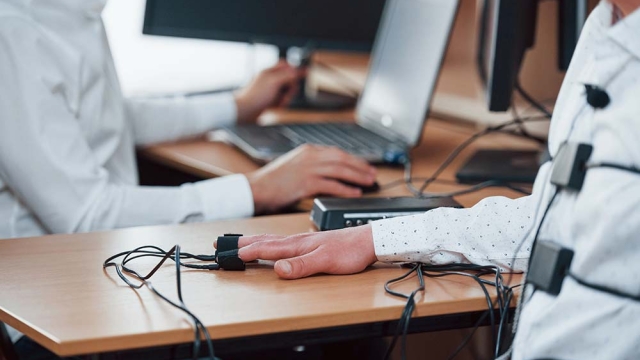
Are you curious about the mysteries behind lie detector tests? Also known as polygraphs, these tests have long been used in various settings to uncover deception. The idea of a machine that can detect lies like in a spy movie sounds intriguing, but do these tests actually work as flawlessly as depicted in the media? Let’s delve into the world of lie detector tests to unveil the truth hidden behind their shiny exterior.
History of Lie Detector Tests
Lie detector tests trace back to the early 20th century. The first notable attempt at a system for detecting deception was developed in 1914 by William Marston, a psychologist and inventor. His invention involved measuring blood pressure to assess truthfulness.
Lie detector test
In the 1920s, another pioneer in the field, John Larson, enhanced lie detection methods by introducing the polygraph machine. This device recorded changes in blood pressure, pulse rate, and respiration rate during interrogations, providing a more comprehensive picture of physiological responses associated with lying.
Throughout the following decades, advancements in technology and the refinement of testing procedures continued to shape the evolution of lie detector tests. Despite ongoing debates about their reliability, these tests remain a commonly used tool in various settings, including law enforcement and employment screenings.
Accuracy of Lie Detector Tests
Lie detector tests have long been viewed as a reliable method to determine whether someone is telling the truth. However, their accuracy has been a topic of much debate among experts in the field. While polygraph tests measure physiological responses such as heart rate, blood pressure, and skin conductivity, the interpretation of these responses can vary depending on the skill of the examiner.
One of the key factors influencing the accuracy of lie detector tests is the individual being tested. Factors such as anxiety, stress, and certain medical conditions can impact a person’s physiological responses, leading to potential inaccuracies in the test results. Additionally, the mindset and perception of the examinee towards the test itself can also affect the outcomes, highlighting the complex nature of interpreting lie detector results.
Despite advancements in technology and methodologies, lie detector tests are not foolproof. Research has shown that false positives and false negatives can occur, casting doubt on the overall reliability of these tests. As such, it’s essential to approach the results of a lie detector test with caution and consider them as one piece of the puzzle rather than definitive proof of deception.
Ethical Considerations
Lie detector tests raise ethical concerns regarding privacy, consent, and reliability. The use of such tests can infringe on an individual’s right to privacy, as the questions asked during the test may delve into personal and sensitive information without their full consent.
Furthermore, relying on lie detector tests as definitive proof of deception can be risky, as these tests are not foolproof and can be influenced by various factors such as anxiety, stress, or even the skill of the examiner.
It is crucial for professionals administering lie detector tests to uphold ethical standards, ensuring that individuals are fully informed of the test’s limitations and their rights before proceeding. This transparency is essential for maintaining trust and credibility in the use of lie detector tests in various settings.


